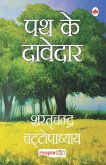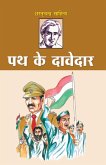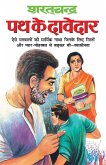Path ke Davedar attacks social parochialism and explains the path of love and Revolution. It presents Revolution in a way in which life and death and sin and virtue all disappear and what remains is only Revolution. But Revolution is never peaceful as it has to cross the path of violence. This is its blessing as well as its boon. This novel had not only shaken up the entire British government when it was first published, but was also banned by them.
Hinweis: Dieser Artikel kann nur an eine deutsche Lieferadresse ausgeliefert werden.
Hinweis: Dieser Artikel kann nur an eine deutsche Lieferadresse ausgeliefert werden.








